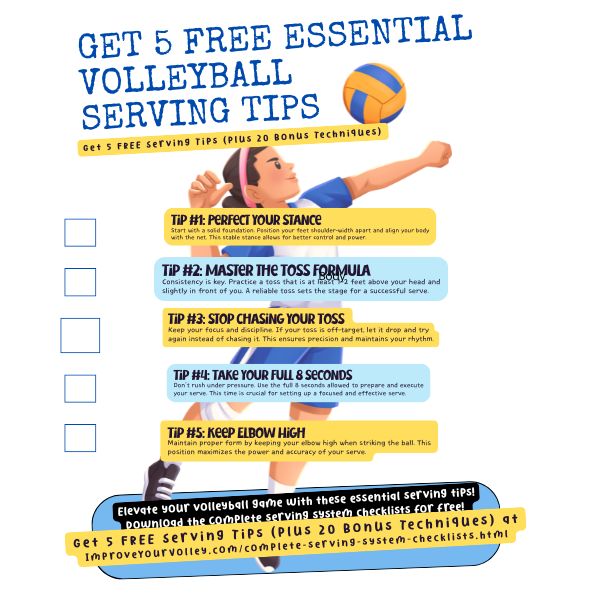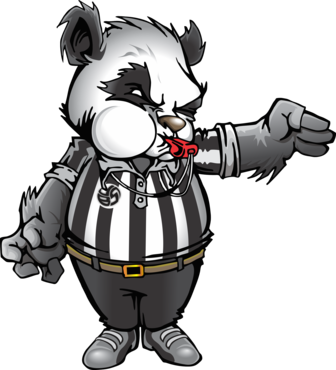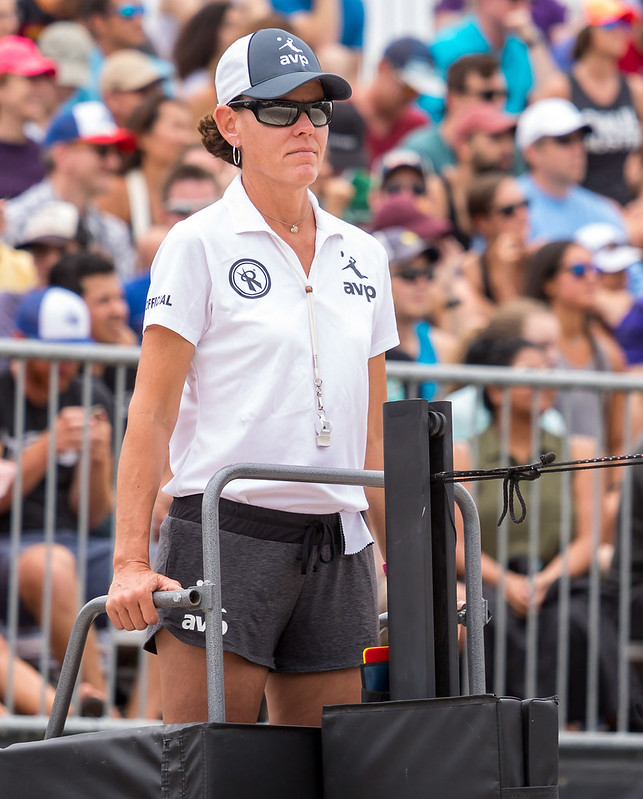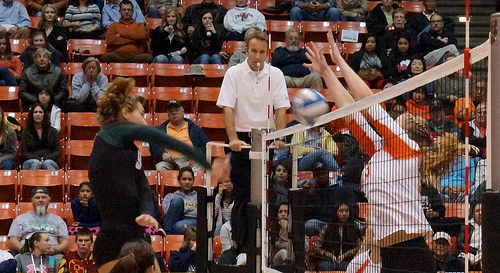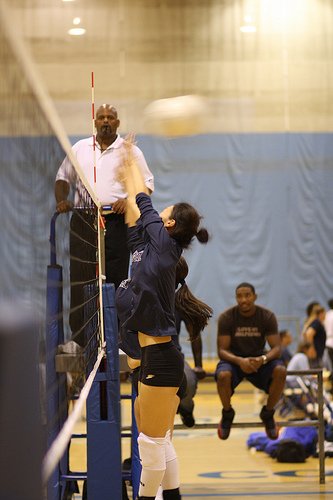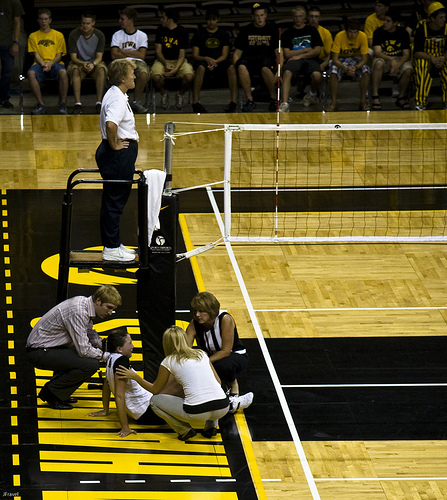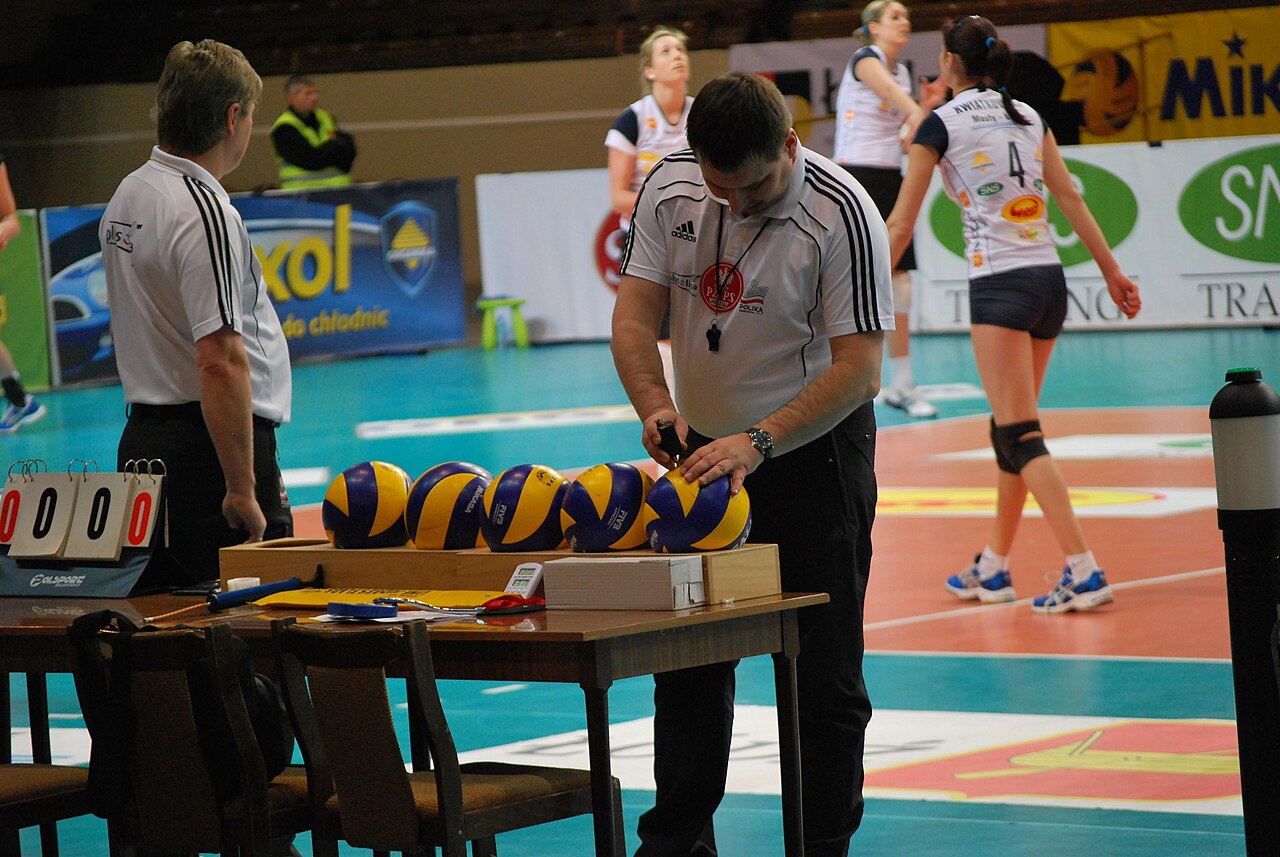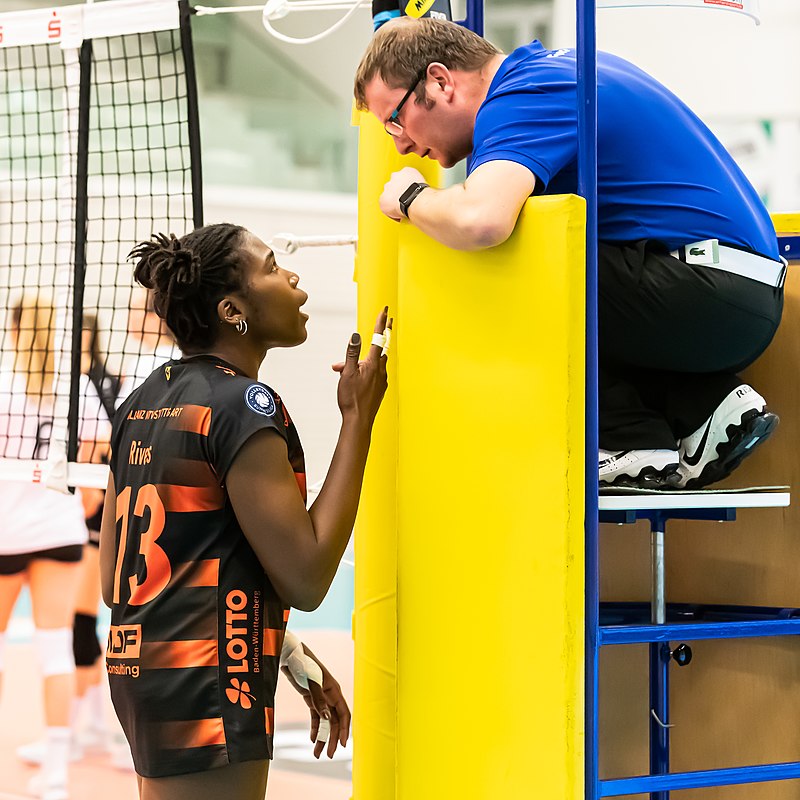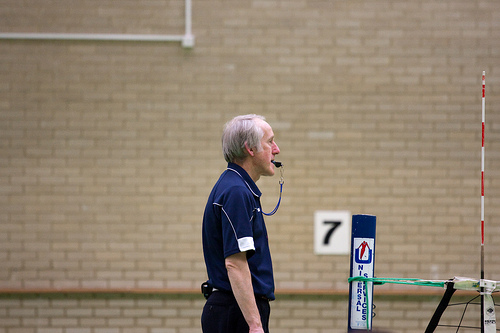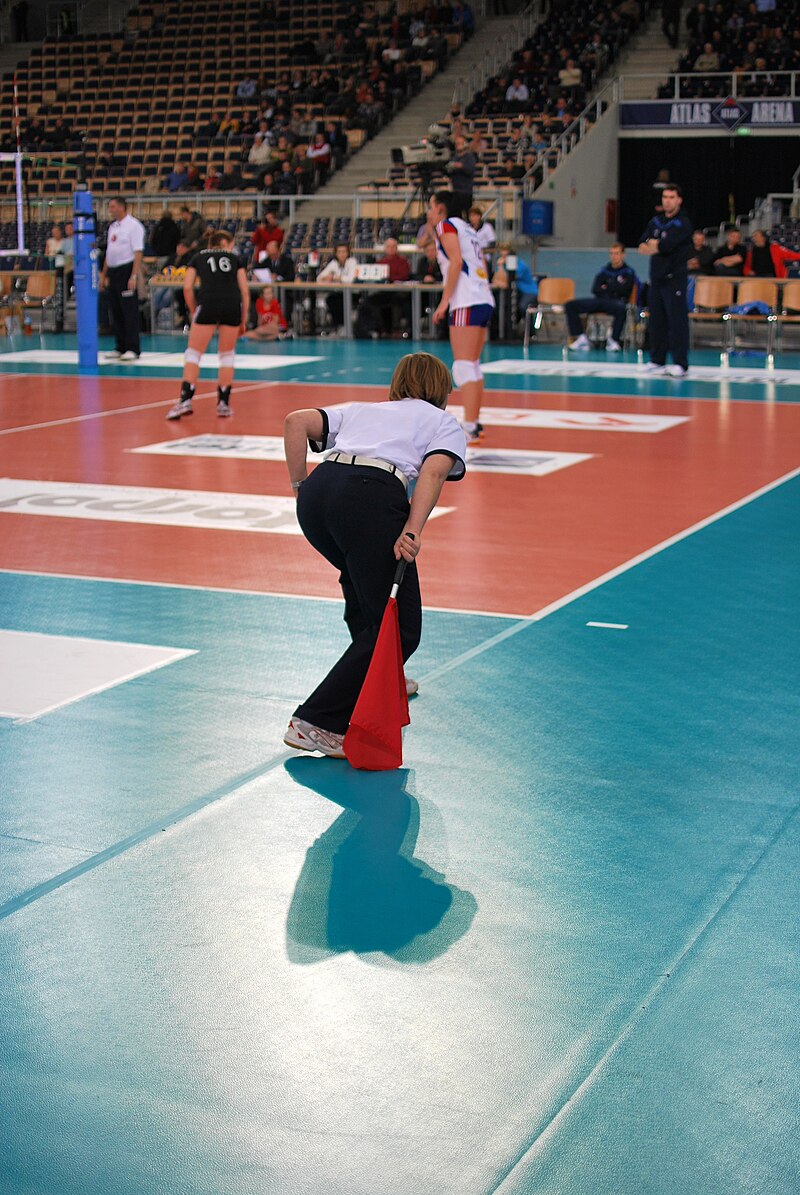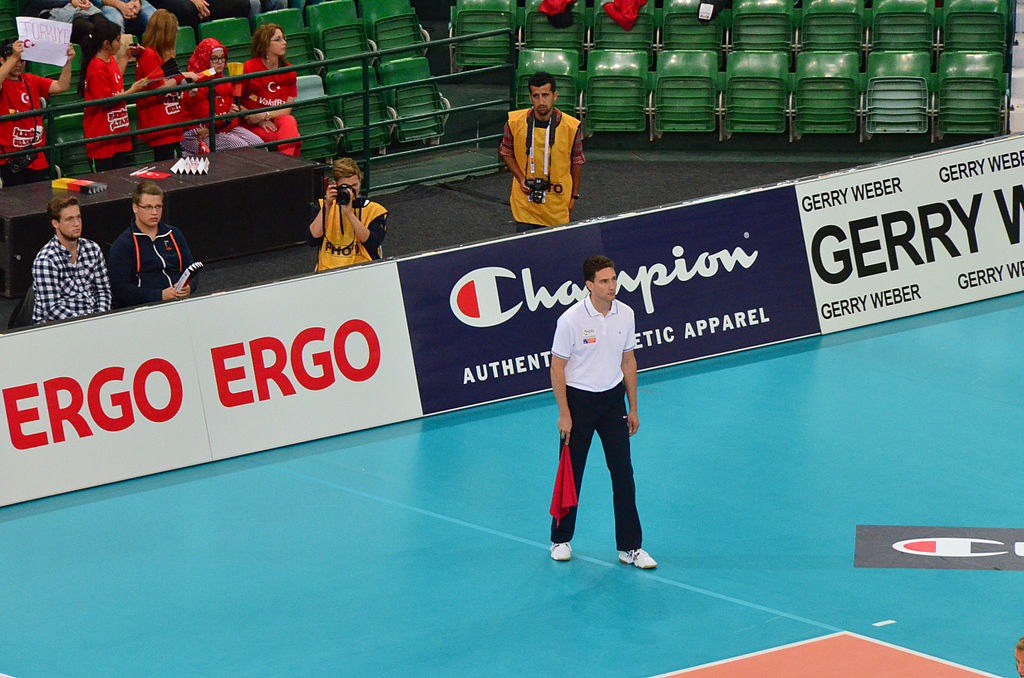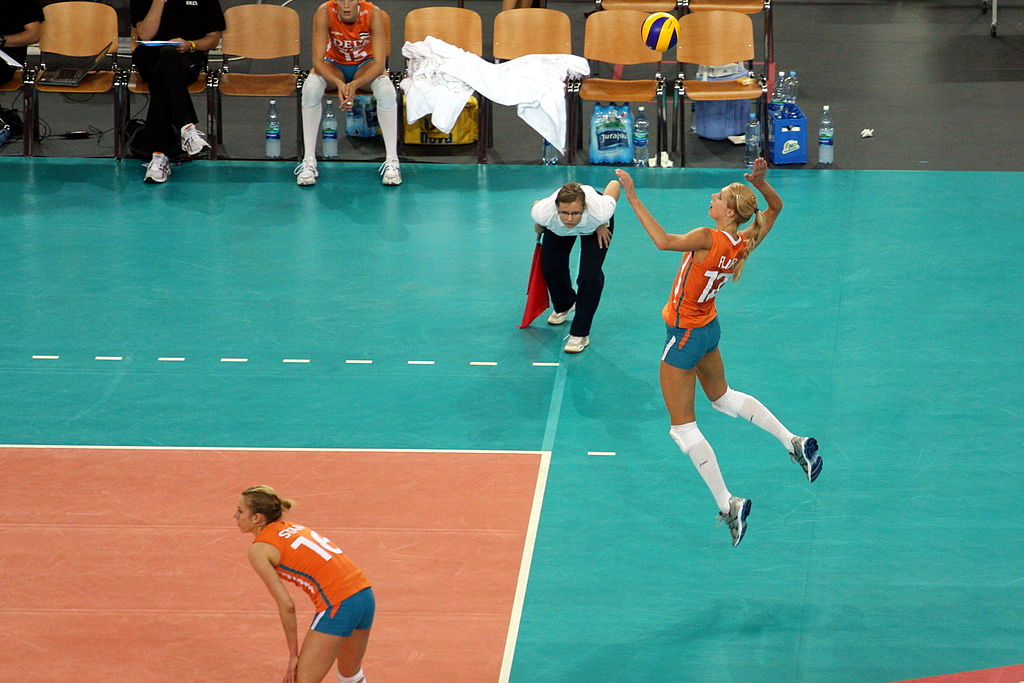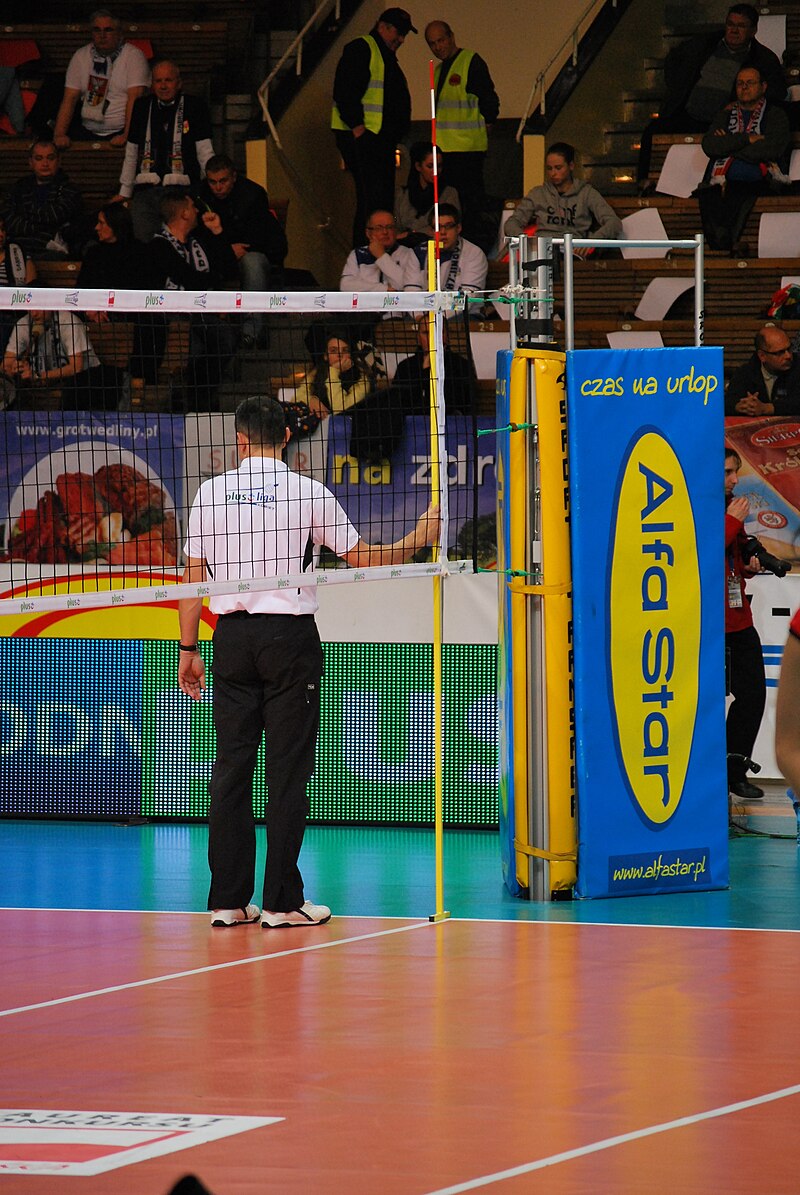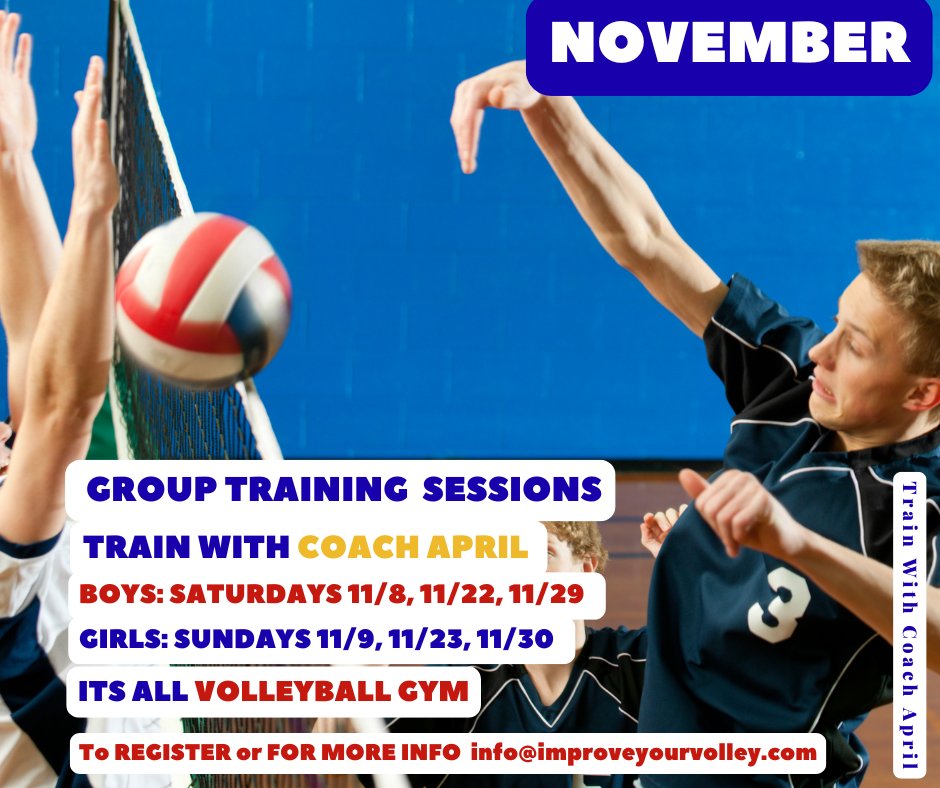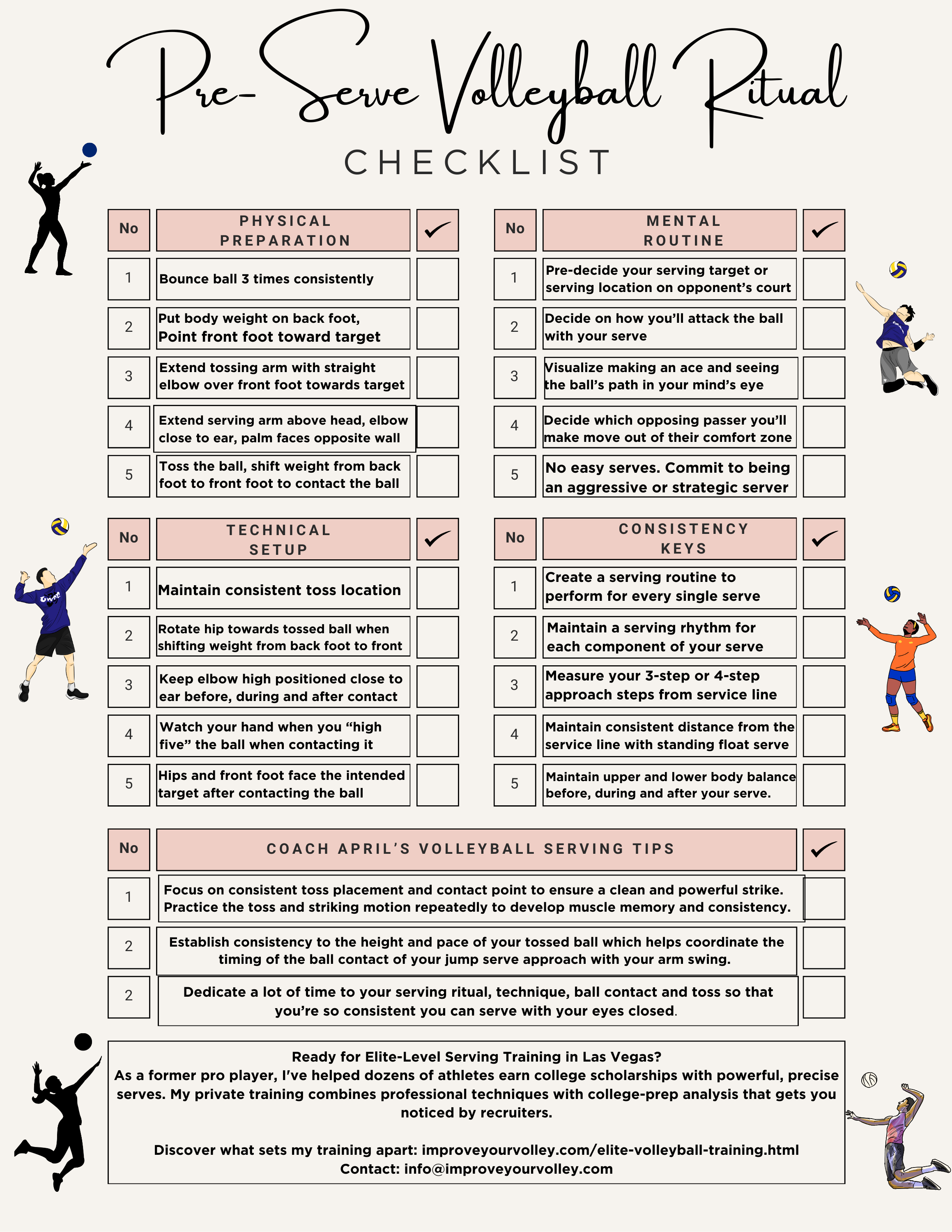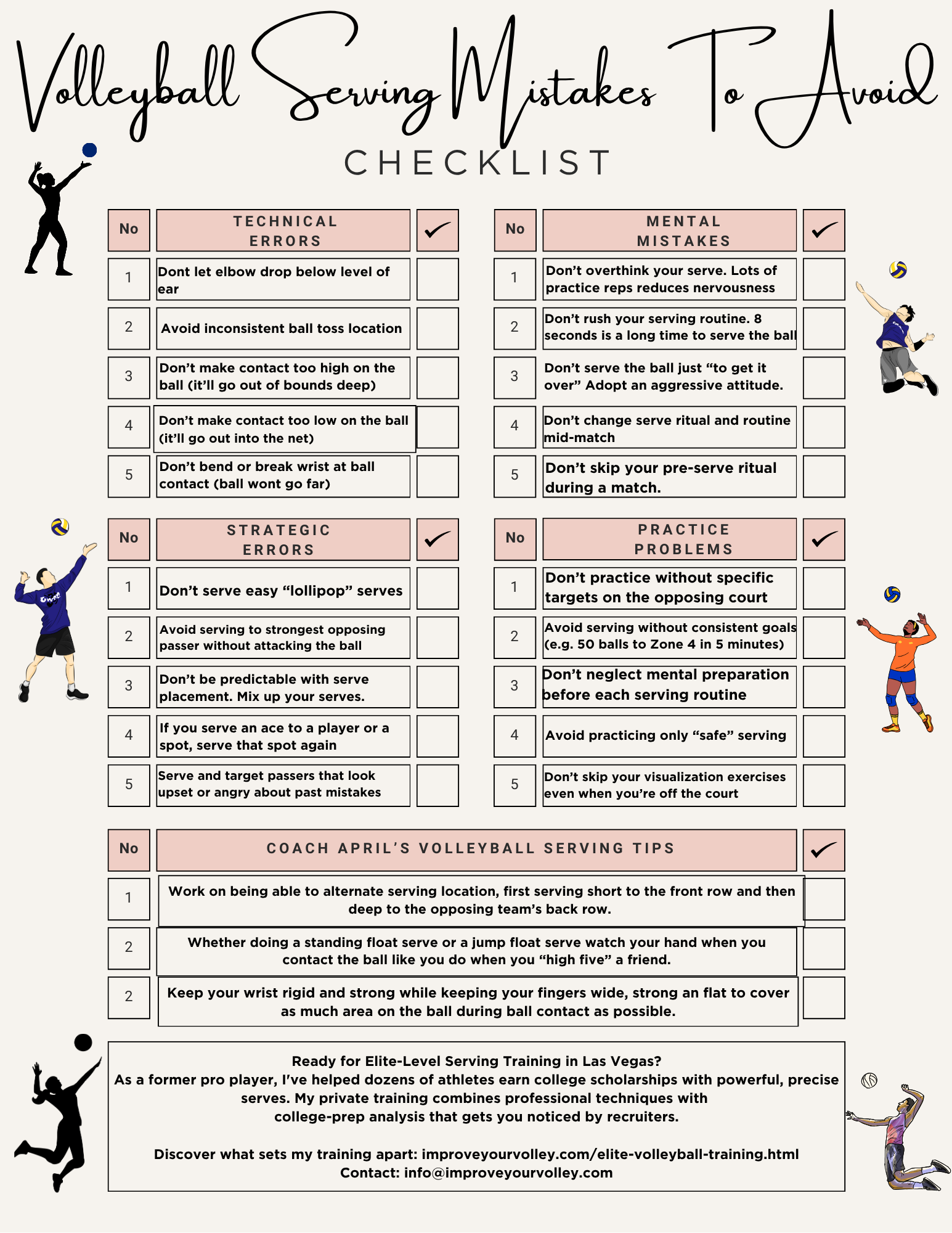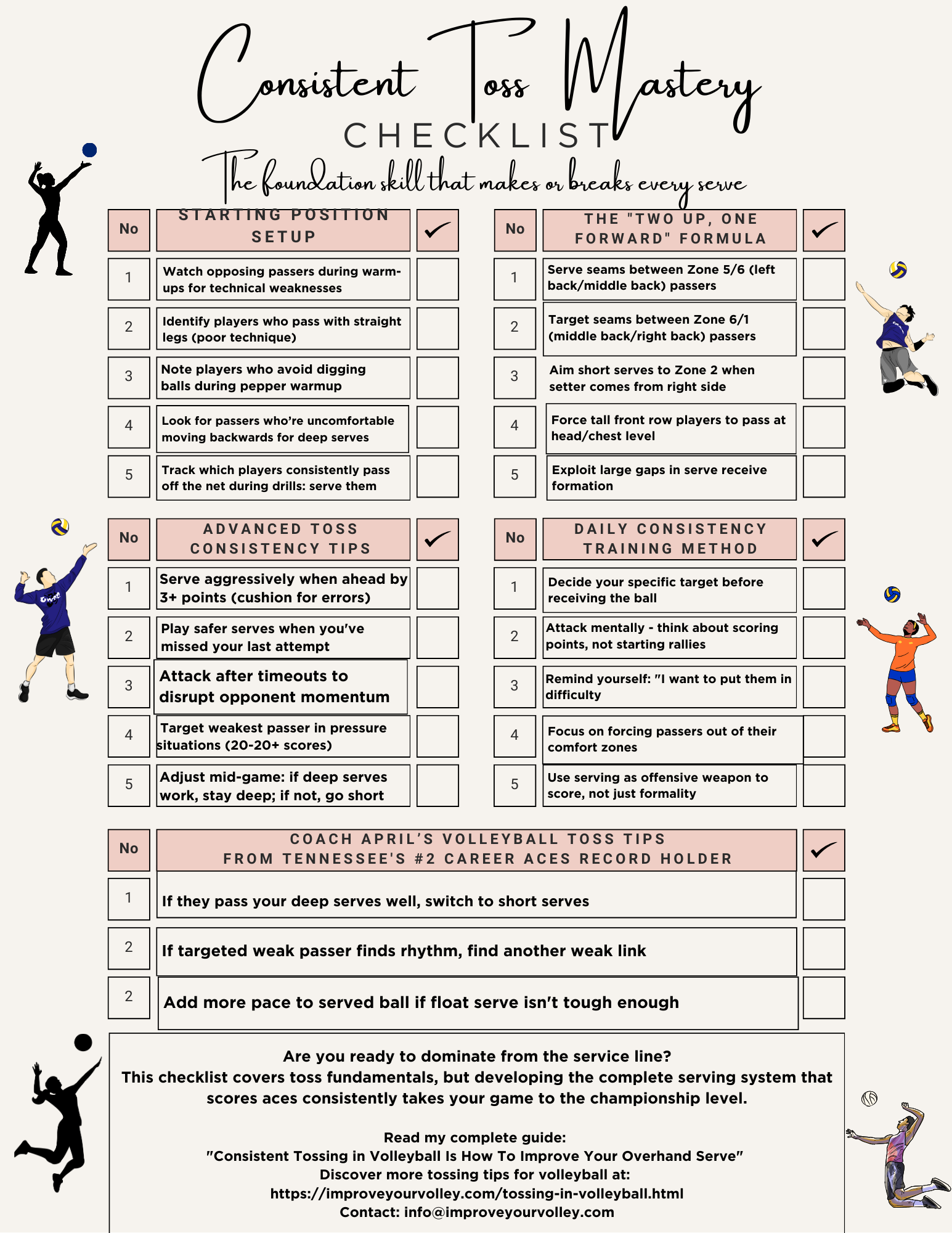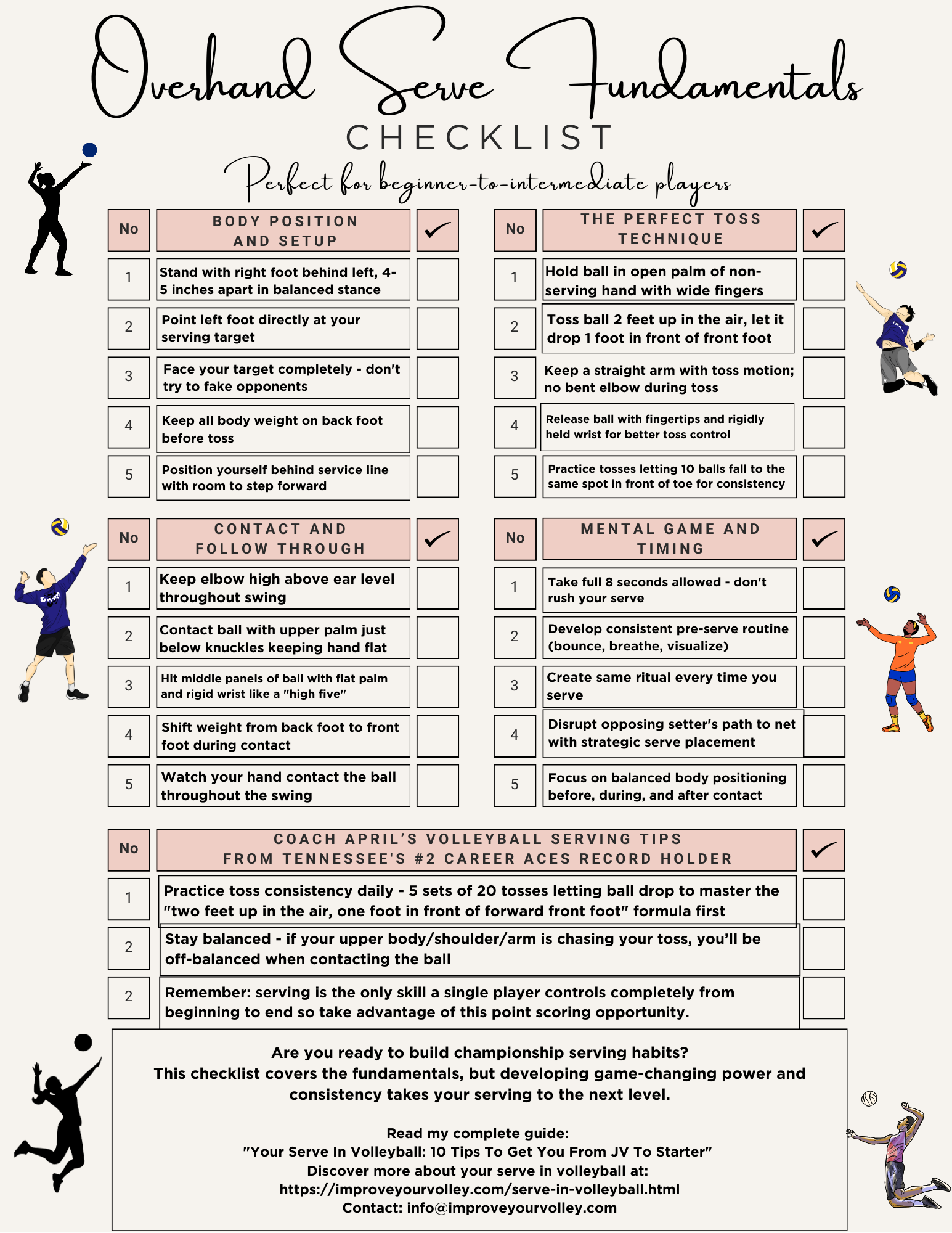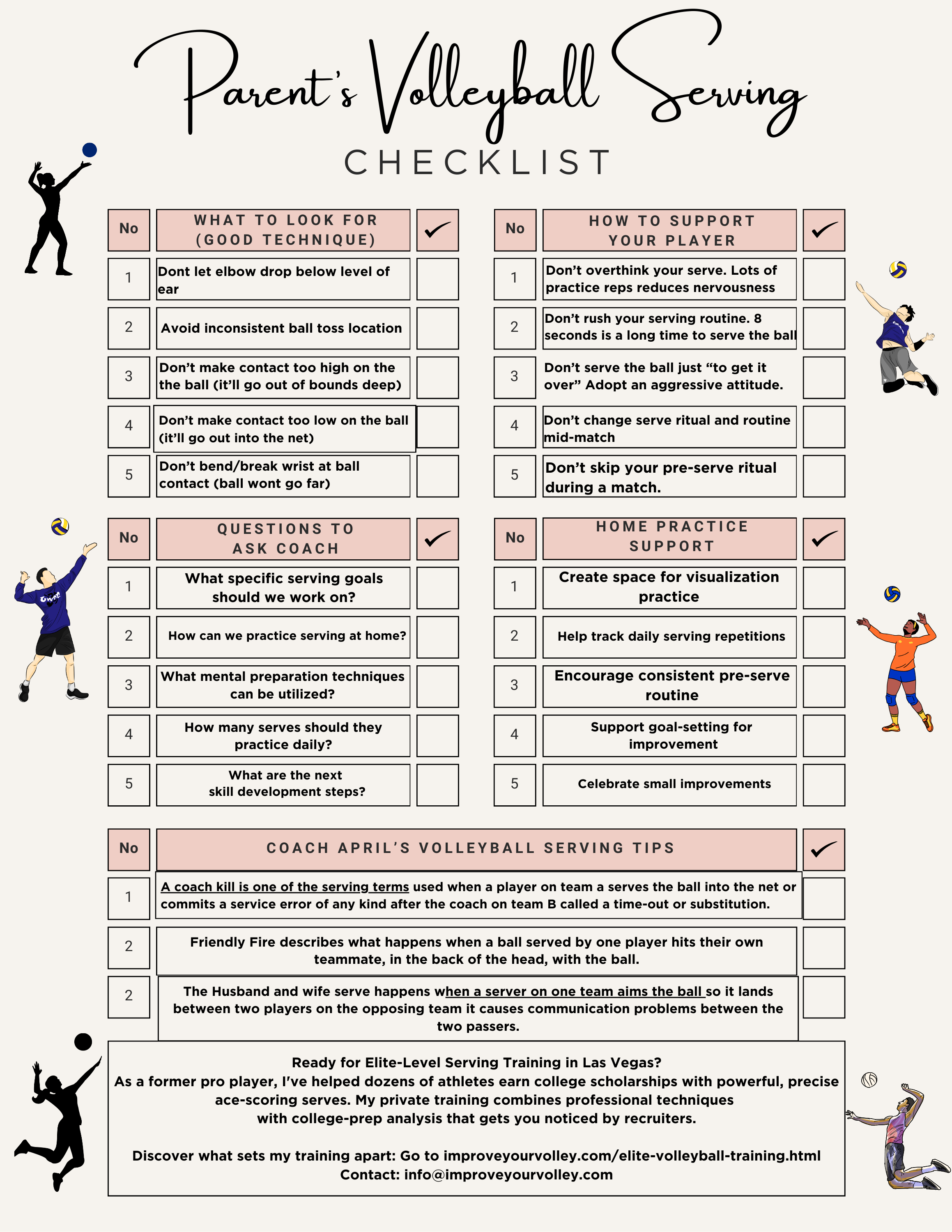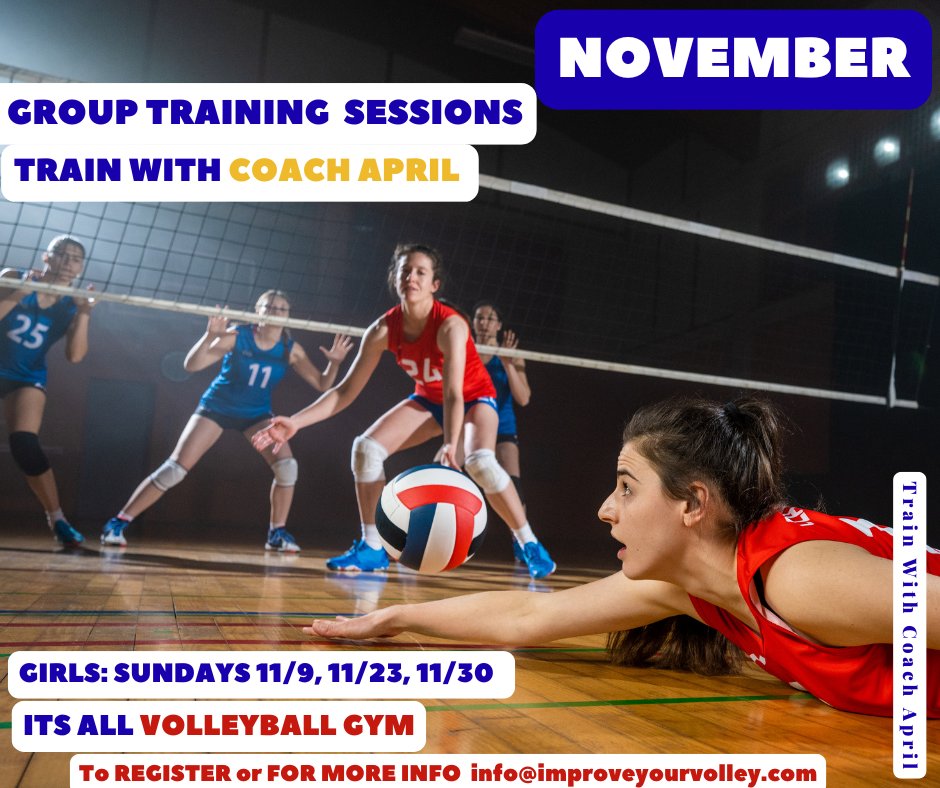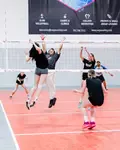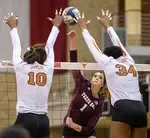- Improve Your Volleyball with Coach April
- Volleyball Serving Rules
- Volleyball Officials
Dear Volleyball Mom Here's Why Volleyball Officials Are So Important!
Let me explain what the volleyball officials, referees, linesmen and scorers duties and responsibilities are during an official game or match or tournament.
In competitive matches, volleyball officials are responsible for officiating the two teams competing against each other.
Volleyball officials at the school, club, national, and international level for matches all have officials
- responsible for refereeing the match
- keeping score and
- watching the court during rallies to observe, moderate and
- determine which of the two teams wins and
- making sure both teams compete fairly by following official volleyball rules.
Let's review
- the job descriptions
- responsibilities and
- the roles of the volleyball officials and referees
and others who may be officiating your next game on.
Why is knowing this information important?
The referee and other non-playing officials on the court have a say in what happens during a game you are competing in.
Sometimes volleyball players agree with them, and lots of times players don't.
Knowing what the officials job responsibilities are can help you win a few arguments should the occasion arise.
Below, I've described the responsibilities of the volleyball referees and the people they work with.
What's a First Referee?
The first referee, aka the first official aka the 'up" referee
- starts the match
- judges each play and
- calls the technical fouls
- assigns points and side outs
as they occur to each qualifying team and also makes the final decision on questionable plays.
He or she is called the "up" referee because they climb up and call the game from an elevated volleyball stand.
The first referee
- watches the blockers for net touches,
- calls the double hits, lifts, technical fouls, timeouts and
- starts each play with a whistle blow to each server.
Here are a few more responsibilities of the first referee:
Before the match starts:
- the first referee inspects the balls,
- the court equipment like the net and antennae and
- inspects the conditions of the playing area.
- They perform the coin toss with the team captains and moderates the beginning and ending time for warm ups
Volleyball Officials: During the Match
- the first referee will issue warnings to teams
- can sanction misconduct delays of the game
- the faults than can occur when the ball is being played
Volleyball Officials: End of the Match
- they check the score sheet and sign it
Volleyball Officials: What's a Second Referee?
 The second referee, one of the volleyball officials, sometimes known as the "down" referee assists and supports the first referee mainly by calling fouls that occur under the net.
The second referee, one of the volleyball officials, sometimes known as the "down" referee assists and supports the first referee mainly by calling fouls that occur under the net.The second referee is across from the first referee on the opposite side of the net officiating the game from the ground.
The second referee, one of the volleyball officials, sometimes known as the "down" referee assists and supports the first referee mainly by calling fouls that occur under the net.
They watch a
a) team's rotation order to make sure players are in the right position,
b) foot faults committed by the server or back row hitter,
c) answer questions and monitor the score and players being substituted in and out of the substitution zone
d) also looks to the linesman for judgment calls when needed.
They also watch players on team benches who are in the warmup area, controls and helps monitor both team's timeouts, communicates with the scorer at the score table.
At the beginning of matches and at the beginning of each set, the second referee checks each team's rotation based on how each coach has entered their starting lineup on the lineup sheet.
During competition they whistle and signal ...
- any penetration into the opponent's court over the net or under the net
- any overlaps or out of position faults by the team in serve receive
- any time the ball touches the floor when the first referee can't see where or how it landed
At the end of the match, the second referee
- checks the score sheet and signs it
Volleyball Officials: What's A Scorer?
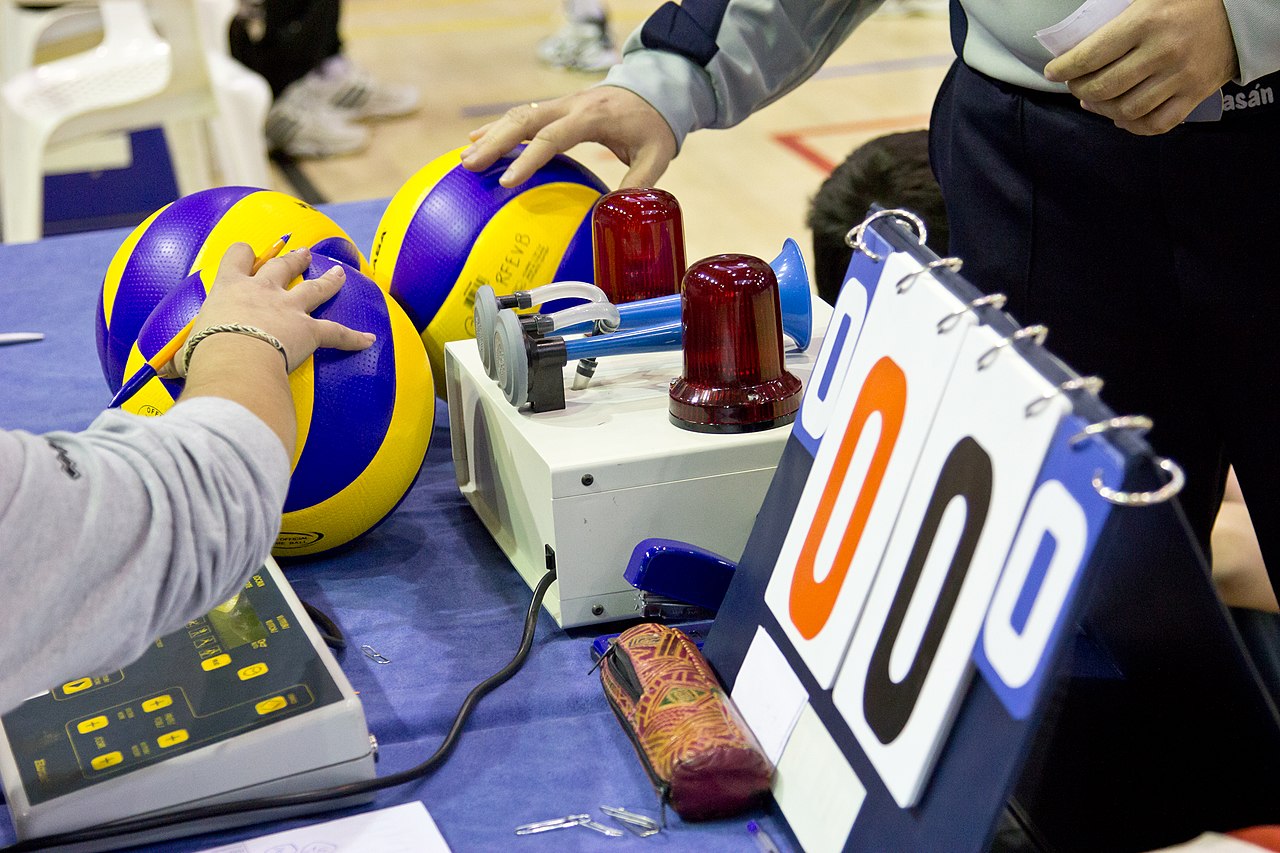
The scorer operates their functions from a table, the scorer's table which is located behind the second referee.
Before the match begins the scorer...
- registers the numbers on jerseys and each team's lineup in the scorebook and lineup sheets
- gets the signatures of the captains and coaches
During the match...
- records the points scored by both teams, tracks timeouts and substitutions called
- monitors the service order for each team and notifies the second referee if a player serves out of order
- records yellow cards and red cards, misconduct warnings, sanctions and improper requests and controls the intervals between sets
- records other events like special substitutions, recovery time, long interruptions,
After the match the scorer...
- records the final result
- if there are any protests launched during the match, the scorer, with permission from the first referee will allow the captain of the team launching the protest, to write the details of their protest on the score sheet in a statement regarding the incident.
- signs the score sheet before obtaining the signatures of the team captains and then the referees
Volleyball Officials: What's a Linesman?
Depending on what type of game is being played, there are two or four linesmen that stand on only two or all four corners of the volleyball court.
When there are two official linesmen one stands at the corner where the sideline and the service line meet on one side and the other linesman stands in the same place on the opposing team's side.
In official games, the linesmen will have a flag in their hands, if not, then they will make their calls using their arms.
Their responsibility is to judge whether a volleyball has landed inside or outside of the sidelines or service lines and to call any block touches.
Linesmen or linespersons use flags to
- indicate their calls of the ball being "in" or "out" when they call balls close to the sideline or endline
- touches on balls going out
- the ball touches the antenna, if it passes outside of the net and the third hit of a ball crossing over the net outside the crossing space
Essential Equipment for Volleyball Officials
As a volleyball official, having the right equipment is crucial for maintaining control of the game and performing your duties effectively.
Whether you're just starting your officiating career or you're a seasoned referee, certain essential tools are necessary to help you make accurate calls and manage matches professionally.
From traditional whistles to modern electronic alternatives, and from basic scoresheets to specialized referee equipment, each piece of gear serves a specific purpose in helping officials maintain the high standards expected in competitive volleyball.
The following recommendations are based on current industry standards and feedback from experienced officials at various levels of competition.
Let's explore the must-have equipment that every volleyball official should consider having in their referee bag.
These items not only help you perform your duties more effectively but also contribute to presenting a professional image that commands respect from players, coaches, and spectators alike.
Whistles and Electronic Whistles
The whistle is perhaps the most important tool in a referee's arsenal.
While traditional pealess whistles like the Fox 40 have been the industry standard for years, electronic whistles have gained popularity, especially since the pandemic, offering consistent sound quality and hygienic advantages.
Check out my WHISTLES AND ELECTRONIC WHISTLES Recommendations (Affiliate Links)
Premium Electronic:
- Fox 40 Electronic Power Whistle
* 3 sound levels
* Water-resistant
* USB rechargeable
* 120dB maximum
* Price: $45-50
- All-Sports Electronic Whistle Pro
* Multiple tones
* Battery indicator
* Lanyard included
* Carrying case
* Price: $35-40
Traditional Premium:
* 120dB output
* Cushioned mouth grip
* Pealess design
* Price: $25-30
Referee Uniforms and Apparel
Professional appearance matters in officiating. Standard referee uniforms typically include white collared shirts, black pants, and comfortable athletic shoes with good traction. Having multiple shirts on hand is essential for tournaments or back-to-back matches.
REFEREE UNIFORMS AND APPAREL
Professional Package:
* 2 certified shirts
* Moisture-wicking fabric
* Reinforced stitching
* Size XS-3XL
* Price: $100-120
Mid-Range Uniform:
* Lightweight polyester
* Ventilated panels
* Standard cut
* Price: $50-60
Referee Pants:
- Wilson Certified Officials Pants
* 4-way stretch
* Multiple pockets
* Moisture-wicking
* Price: $40-50
Scorebooks and Line-up Sheets
Accurate record-keeping is super important for any official match.
Quality scorebooks and carbon-copy lineup sheets help maintain precise game records and ensure smooth rotation tracking throughout the match.
Digital alternatives are also becoming increasingly popular.
SCOREBOOKS AND LINE-UP SHEETS
for Volleyball Officials
Premium Volleyball Scorebook:
- Tandem Volleyball Scorebook Pro
* 100 games
* Hard cover
* Quick reference guide
* Price: $30-35
Digital Alternative:
* Digital scoring
* Stats tracking
* Cloud backup
* Price: $40/year
Volleyball Line-up Sheets:
* 100-sheet pack
* Three-part forms
* Weather-resistant
* Price: $25-30
Officials' Equipment Bags
Officials' Equipment Bags
A dedicated referee bag keeps all your essential equipment organized and readily accessible. Look for bags with multiple compartments to separate whistles, uniforms, scorebooks, and other tools of the trade.
OFFICIALS' EQUIPMENT BAGS
Premium Bag:
- Referee Pro Gear Bag
* Multiple compartments
* Water-resistant
* Laptop sleeve
* Whistle pocket
* Price: $80-100
[Amazon affiliate link]
Mid-Range Option:
- Official's Choice Equipment Bag
* Basic organization
* Durable material
* Shoulder strap
* Price: $50-60
[Amazon affiliate link]
Line Judge Flags and Equipment
Line judges need high-visibility flags that can be seen clearly across the court. Quality flags should be durable and maintain their bright colors even after extended use. Some officials prefer flags with weighted handles for better control.
LINE JUDGE FLAGS AND EQUIPMENT
Professional Flags:
- Tandem Sport Pro Line Judge Flags
* Weighted handles
* High-visibility material
* Carrying case
* Price: $40-50
Standard Set:
* Basic design
* Storage bag
* Durable fabric
* Price: $25-30
Volleyball Officials Measurement Tools
Net height measuring devices and ball pressure gauges are essential for pre-match court setup and equipment checks.
These tools ensure that all playing conditions meet official regulations before the first whistle.
Premium Height Gauge:
* Digital display
* Multiple presets
* Carrying case
* Price: $75-100
Ball Pressure Gauge:
- Mikasa Digital Pressure Gauge
* LCD display
* Multiple sport settings
* Case included
* Price: $30-40
Reference Materials and Cards
Every official should carry a current rule book, red and yellow cards, and lineup cards. Small notepads or digital devices for recording match notes and unusual situations can also be invaluable tools during matches.
REFERENCE MATERIALS AND CARDS
Complete Set:
- Official's Reference Package
* Current rule book
* Red/yellow cards
* Score sheets
* Quick reference cards
* Price: $40-50
[Amazon affiliate link]
Digital Resources:
- USAV Digital Rulebook
* Annual subscription
* Online access
* Updates included
* Price: $20-25
[USAV link]
Volleyball Referee Stands
A quality referee stand is essential for providing officials with the elevated perspective needed to make accurate calls during matches.
The right stand should offer stability, proper height adjustment, and safety features that protect both the official and nearby players. Whether you're purchasing for a school gymnasium, club facility, or tournament venue, selecting the appropriate referee platform is crucial for maintaining professional officiating standards.
Modern referee stands come in various styles, from traditional fixed-height models to advanced adjustable systems with padding and wheels for easy transport.
Key features to consider include sturdy handrails, non-slip steps, proper padding coverage, and platform stability. Some newer models even include convenient features like built-in writing surfaces and equipment holders.
For facilities hosting multiple levels of play, from youth to adult competitions, adjustable-height stands are particularly valuable as they can accommodate different net heights and referee preferences.
Look for stands that meet current safety regulations and include appropriate padding to protect both officials and players during competitive play.
VOLLEYBALL REFEREE STANDS PRODUCT RECOMMENDATIONS
PREMIUM REFEREE STANDS ($2,000-3,500)
1. Senoh Elite Referee Platform
- Professional Features:
* Hydraulic height adjustment
* 360-degree swivel platform
* Premium safety padding
* Built-in writing surface
* Wheels for transport
* Storage compartments
- Best For: Professional venues, colleges
- Price Range: $3,000-3,500
[Amazon/Manufacturer affiliate link]
2. Sports Imports Pro Series Stand
- Key Features:
* Electric height adjustment
* Reinforced aluminum construction
* Professional padding package
* Side-mounted cup holder
* Equipment hooks
* Transport wheels
- Best For: Tournament facilities
- Price Range: $2,500-3,000
[Affiliate link]
MID-RANGE REFEREE STANDS ($1,000-2,000)
1. Porter Athletic Official's Stand
- Features:
* Manual height adjustment
* Steel construction
* Standard padding
* Basic writing platform
* Portable design
- Best For: High schools, clubs
- Price Range: $1,500-1,800
[Affiliate link]
2. Jaypro Sports Referee Stand
- Features:
* Multi-height settings
* Powder-coated finish
* Basic padding package
* Foldable design
* Transport wheels
- Best For: Multi-purpose facilities
- Price Range: $1,200-1,500
[Affiliate link]
BUDGET-FRIENDLY STANDS ($500-1,000)
1. Champion Sports Referee Platform
- Features:
* Fixed height design
* Steel construction
* Basic padding
* Portable base
* Simple assembly
- Best For: Recreational facilities
- Price Range: $700-900
[Affiliate link]
2. Franklin Sports Official's Stand
- Features:
* Basic height settings
* Lightweight design
* Essential padding
* Collapsible frame
* Easy storage
- Best For: Small venues
- Price Range: $500-700
[Affiliate link]
COMPARISON CHART
Feature | Premium | Mid-Range | Budget
--------|----------|------------|--------
Height Adjustment | Hydraulic/Electric | Manual | Fixed/Basic
Construction | Aircraft Aluminum | Steel/Aluminum | Steel
Padding | Premium/Full | Standard | Basic
Mobility | Wheels/Portable | Basic Wheels | Manual Move
Platform Size | Large/Adjustable | Standard | Basic
Writing Surface | Built-in | Basic | None
Storage | Multiple Compartments | Basic Hooks | None
Weight Capacity | 300+ lbs | 250-300 lbs | 200-250 lbs
Warranty | Lifetime | 5-10 Years | 1-3 Years
Assembly Required | Professional | Self/Basic | Self
Price Range | $2,000-3,500 | $1,000-2,000 | $500-1,000
BUYING CONSIDERATIONS
Safety Features to Look For:
- Non-slip platform surface
- Secure handrails
- Quality padding
- Stable base design
- Proper weight capacity
Facility Considerations:
- Storage space available
- Transport requirements
- Multiple court setup needs
- Height adjustment needs
- Budget constraints
Maintenance Requirements
Premium:
- Annual professional inspection
- Quarterly padding check
- Monthly hardware tightening
Mid-Range:
- Bi-annual inspection
- Monthly padding check
- Regular hardware check
Budget:
- Quarterly inspection
- Regular stability check
- Basic maintenance
TEAM REFEREE KITS FOR CLUB TOURNAMENTS
As a club volleyball coach, I know the importance of being prepared for officiating duties at tournaments.
Every team needs a reliable referee kit for those mandatory officiating assignments during weekend tournaments.
Here's what your team needs to look professional and perform efficiently.
COMPLETE TEAM REFEREE KIT PACKAGES:
Premium Team Kit ($150-200)
- Contents:
* 2 Electronic whistles (primary & backup)
* 1 Traditional Fox 40 whistle
* Digital scorebook/tablet holder
* Line-up cards (50-pack)
* Team officiating bag
* 2 Sets of red/yellow cards
* Quick-reference rules card
* 4 Line judge flags
[Amazon affiliate link]
Standard Team Kit ($80-120)
- Contents:
* 1 Electronic whistle
* 1 Traditional Fox 40 whistle
* Paper scorebook
* Line-up cards (25-pack)
* Basic officiating bag
* 1 Set of red/yellow cards
* 2 Line judge flags
[Amazon affiliate link]
Starter Team Kit ($50-75)
- Contents:
* 2 Traditional Fox 40 whistles
* Basic scorebook
* Line-up cards (15-pack)
* Drawstring bag
* Basic flags
[Amazon affiliate link]
TOURNAMENT PREPARATION CHECKLIST:
□ Check whistle batteries
□ Print extra line-up sheets
□ Review scoring procedures
□ Assign officiating roles
□ Pack backup equipment
MY PRO COACH TIPS:
- Keep backup whistles charged/available
- Assign kit responsibility to team captain
- Practice scoring during team training
- Create rotation of officiating duties
- Keep spare batteries for electronic whistles
Do You Follow Me on Pinterest?
Follow me on Pinterest Volleybragswag to improve your game even faster!
I share alot of individual, partner and easy-to-do volleyball serving drills we do in class with my followers.
Many of these volleyball practice drills you can do at home by yourself or try at your next practice with your teammates.
If you're a B team or JV player trying to make varsity next year...your goal should be to complete 1000 reps a day of at least three of the basic skills on your own...volleyball passing, serving and setting should be at the top of the list.
Rules of Volleyball: Where Do You Go From Here?
Where do you need to go now? Here are three options:
- Learn more about the Referees and Officials.
- Follow the suggested reading on our Sitemap page Learning How To Play (Sitemap)
- Or visit the pages in the Rules section in the drop down menu at the top of the page.
If your athlete struggles with consistent serve receive, gets subbed out, or is overlooked for playing time—this is the fix you’ve been looking for.

Struggling with passing consistency?
I help talented passers tired of getting pulled from games because of inconsistent serve receive skills BUILD passing confidence without expensive private lessons using the same 3-step system that's helped dozens of my athletes get recruited.
Download my eBook for $17.99 and start building the passing confidence that keeps you on the court—and gets you seen by college coaches.
From Lady Vol to Legend: Coach April Produces Powerful Passionate Players...is that you?
What Are You Looking For?
Click to Download Your Pre Serving Ritual Mastery Checklist pdf:
🎯Volleyball Pre Serving Ritual Guide -
Players! Learn How To Transform Your Serve from Weak to Weapon
Click to Download Your Parent's Volleyball Serving Checklist pdf
🎯Parent's Volleyball Serving Checklist Guide
Parents! Help Your Player Develop Championship Serves (Even If You've Never Played)

Hi there!
Thanks for stopping by. Hope you learned something today that will help you reach your volleyball goals.
Be sure to subscribe to my email newsletter so you can learn more each week!
Stay strong! Stay motivated!
-Coach April

SUSCRIBE to my email newsletter below!
 Click to learn more about the weekly volleyball classes and clinics or email info@imrpoveyourvolley.com for information
Click to learn more about the weekly volleyball classes and clinics or email info@imrpoveyourvolley.com for informationCongratulations to my seven Boys-18s Vegas Volley club players who played in two state championship finals yesterday, the 3A and 5A State champinship finals at Sunrise Mountain High School.
TOURNAMENT CHAMPIONS!
A-1 Vegas Volley VBC
In It To Win It Tournament
May 2 - 4, 2025 Tournament
Gold Medalists
18s Premier Division
Vegas Volleyball's Unsung Heroes: Celebrating Moms with Peace Love Volleyball Shirts
Ready to energize your volleyball mom journey?
Subscribe to my 'Producing Powerful Passionate Peaceful Players' email list above on ImproveYourVolley.com.
You'll receive energy-boosting tips, exclusive insights from me, Coach April Chapple on maintaining momentum in volleyball.
Let's power up the Vegas volleyball scene together!
Recent Articles
-
Tips For Short Volleyball Players: Top Strategies to Beat Big Blockers
Jan 21, 26 04:56 PM
You don't need to be 6 feet tall to dominate at the net. Learn my tips for short volleyball players to use to outsmart bigger blockers and score more points. -
Essential Skills for a Hitter in Volleyball: Tips For Short Attackers
Jan 11, 26 07:05 AM
A short hitter in volleyball can aim the ball for the seam of the block to score since its harder for defenders to block at the net or dig up in the back row. -
10 Hitting Tactics Short Volleyball Players Use Against Big Blockers
Jan 11, 26 06:57 AM
These are 10 hitting tactics that short volleyball players, can rely on hit against and sideout and score against teams with big blockers in the front row.
